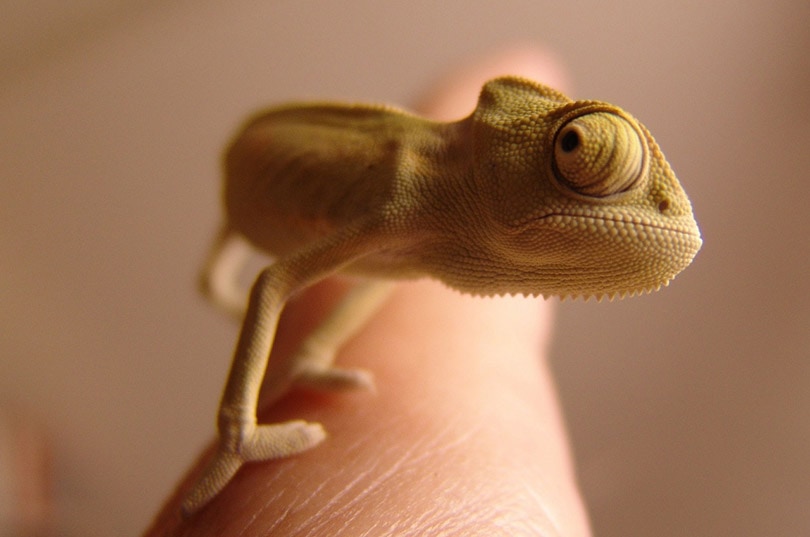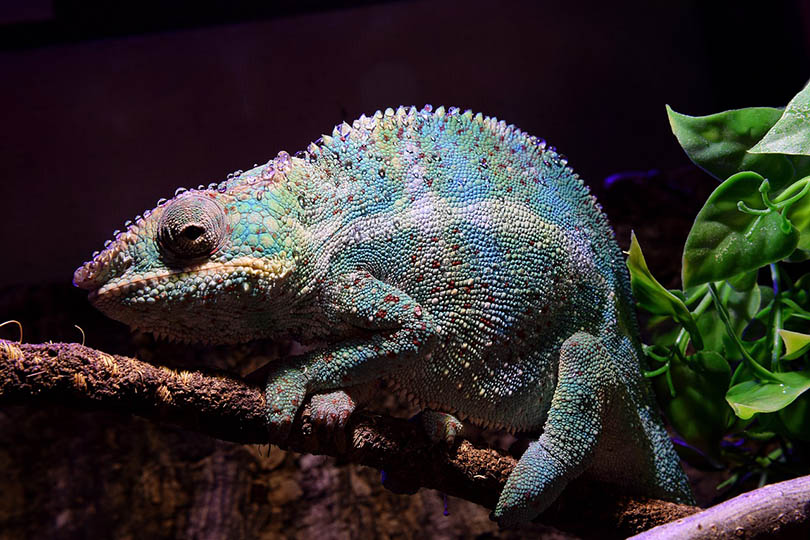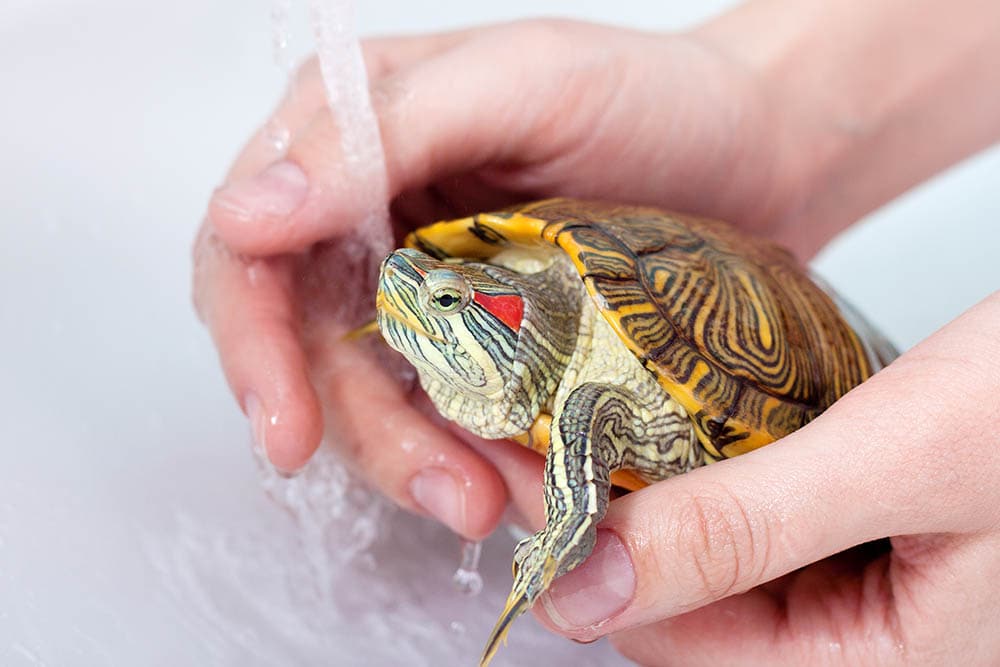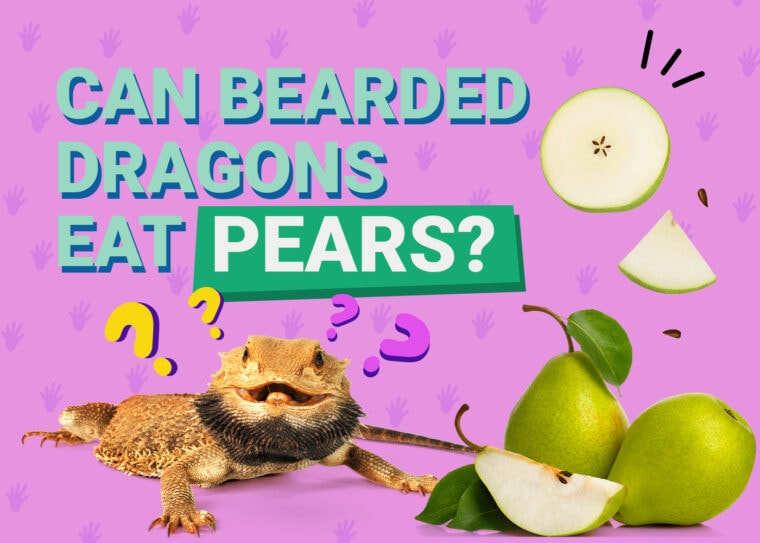
Bearded dragons love to eat fruit! Juicy, sweet pieces of fruit can give bearded dragons the energy they need to explore their surroundings and enjoy a high quality of life overall. But fruit is not the only thing that they should eat. In fact, the main diet of a young bearded dragon should be protein-rich options. Mealworms, crickets, and other types of small, mealy animals are all the rage for bearded dragons.
However, they do enjoy eating fruit as a snack or treat from time to time. With so many fruit options available, which are appropriate for your bearded dragon? We can tell you that pears are safe to be offered to your bearded dragon from time to time.
Are Pears Really Healthy for Bearded Dragons?
Pears are a healthy treat for bearded dragons, but dragons are not herbivores and they require animal protein to stay healthy. However, the animal protein requirements of adult bearded dragons are quite low. Nonetheless, it’s important to look at the nutritional value of pears before offering them to your pet.
Source: https://fdc.nal.usda.gov/fdc-app.html#/food-details/1102682/nutrients
Pears provide vitamins, nutrients, and antioxidants that your bearded dragon. However, like all fruits, they’re considered occasional treats. They are, however, low in oxalates and goitrogens, which are desired traits in any food being offered to your bearded dragon.

Feeding Pears to Bearded Dragons
You should know that feeding pears to bearded dragons is not necessarily required for their good health. However, bearded dragons tend to enjoy eating pear slices as part of their meals or as snacks.
If you’re keen on serving pears for your bearded dragon, consider the following guidelines
All fruit should be cut in small pieces before being offered to your beardie. The skin holds much of the nutrients, but bearded dragons do not have to miss out on it if they refuse to eat it. Alternatively, peeling the skins, then blending them into a smoothie with coconut water offers the nutrients of the coconut and the pears in an easy-to-drink concoction.
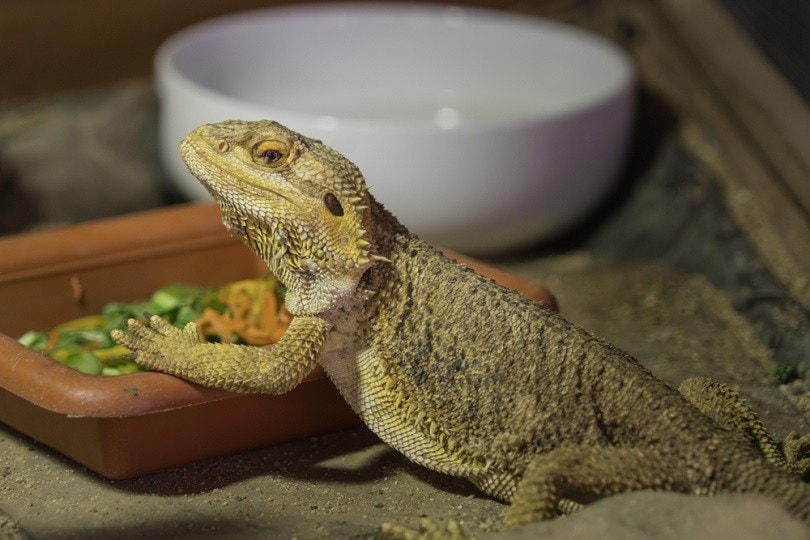
Cautions to Heed
Despite their many benefits, pears should be viewed as an occasional treat for your bearded dragon and not a dietary part of their diet.
The main reason that a pear isn’t recommended as a dietary staple in a bearded dragon’s diet is its calcium-to-phosphorus ratio. For healthy adult bearded dragons in maintenance, their diet should have a calcium-to-phosphorus ratio of anywhere between 1.5:1 and 2:1. This means the calcium should be around twice as much as the phosphorus. The recommended ratio for juveniles is around 2:1, and dragons that are breeding (particularly females) require a much higher calcium intake compared to adults in maintenance.
In pears, the calcium is lower than the phosphorus, typically around 1:1.3. Such a ratio is undesirable for the long-term health of a bearded dragon. Phosphorus balance in the body requires that it be in the correct proportion with calcium. It binds to calcium, so when a bearded dragon is fed high amounts of phosphorus, their body responds by pulling calcium out from the bones to restore the proper levels of minerals and reduce the excess phosphorus in the bloodstream. Over time, the loss of calcium from bone mass can make the bones brittle and weak, leading to a condition called metabolic bone disease.
Digestive issues may be observed if you feed too many pears to your bearded dragon. The high water content of most fruits means consuming large numbers of them in a short span of time can lead to digestive distress that often manifests as episodes of diarrhea.
Pears contain a high amount of sugar (in the form of carbohydrates). In bearded dragons, excess sugar is not directly associated with diabetes and the exact mechanism of diabetes in bearded dragons is still not properly understood. However, an overabundance of calories can lead to an obese pet, which isn’t healthy and may serve as a precursor for other diseases.
Final Thoughts
Most bearded dragons love pears, and there is no reason to restrict their consumption unless your pet bearded dragon is ill or allergic. Never go out of your way to feed your pet pear pieces, though — serve a small piece only once or twice a week. How do you feel about feeding pears to bearded dragons? Let us know your true thoughts in our comments section below. We look forward to hearing from you!
Featured Image Credit: Free-Photos, Pixabay



